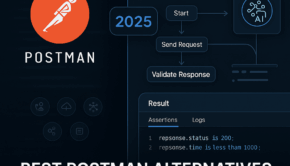Launching your Business Online? Here’s What you Need to Know
So you’ve decided to take the plunge into launching your ecommerce website. Congratulations! However, before you dive in, there are some things you’ll need to know.
Opening up an ecommerce website or online business is different than opening up a brick and mortar location. While some elements might remain the same, like business registration, budgeting, and projections, you’re working with an entirely different crowd online. You have the potential to reach so many new customers across the world, but you have to make sure you’re set up to be able to deliver.
Here is a quick guide for setting up an online business and starting an ecommerce website that will help you make the most out of this process and give you the foundations to create a successful business in the digital world.
Your Business Idea and Target Market
The first thing you need to do before you launch an ecommerce website, or any other business, is research. Look into your product, the market for your product, and who your target audience is going to be. If you’re coming from a brick and mortar store, do the research on how your current audience behaves online and come up with a plan to meet them within the online space. You need a business plan and clearly outlined goals in order to make sure your website is designed and optimized to reach them.
The Legal Regulations in Your Country or Area
When you launch an ecommerce website, you still need to make sure you’re following the business laws and regulations within your area. For example, you’ll need to formulate a privacy policy, create Terms and Conditions guidelines, and implement site security measures. This step also includes regulations and considerations such as shipping restrictions, local and international taxes, licenses or permits, business registration, and PCI DSS (Payment Card Industry Data Security Standard). PCI DSS is usually baked into your payment gateway or hosting security, but you should always double-check to confirm.
Supply and Distribution Plans
Whether you’re creating your products yourself or sourcing them from third party manufacturers, you need to figure out your supply and distribution plans to ensure they stay within your budget and help you turn a profit. This should be considered well ahead of time and incorporated into your business plan.
Distribution is also important. You need to figure out how you’ll get your product to your customers, and you need to know this before you launch your website because your shipping calculations will be integrated within the development of your website. In some cases, this will impact which ecommerce website platform you use.
Ecommerce Website Design and Development
Of course, one of the most important aspects of launching a business online is creating an ecommerce website that will become your online home. A good ecommerce website is a working machine with a variety of smaller parts that work together to power your business.
Here are just some of the general things you’ll need to consider when you start the creation of your ecommerce website:
- Which ecommerce platform to use
- Brand logo, tone, personality, and design
- User experience
- Product imagery and inventory
- Mobile-friendly design
- Payment gateways
- Shopping cart layouts and process
- Email marketing integration
- Shipping and delivery methods
- SEO and content creation
Digital Marketing Strategy
Once your site is up and running, the work doesn’t stop there. Now you’ll need a solid digital marketing strategy to help you find new customers for your online business. When your business is entirely online, you aren’t limited to one specific area and have a whole world of people who are looking for new products. However, you’ll need to rely on strategies such as SEO optimization, social media, and PPC ads in order to promote brand awareness and get your name out there in order for those people to find you.
Post-pandemic Internet Marketing Strategies for SMBs
As the world begins to slowly and carefully open up for business after the COVID-19 pandemic halted the business world in the first half of 2020, small to medium size businesses (SMBs) are looking at a “new normal” with internet marketing and the next steps are critical.
Even when the economy has fully re-opened, a vaccine is available, and people are getting back to the activities they enjoyed, the world is still going to look different. As a result, your internet marketing strategy is likely going to look different, too. Now, you need to focus on post-pandemic online marketing strategies that will help you get back to whatever your new normal looks like.
If your business took a loss over the last few months, your focus is likely getting your operations back up and running without your full budget available to you. That means looking at quick, easy-to-implement internet marketing strategies that will have a higher payoff without the up-front investment.
Rekindle Your Relationship With PPC Ads
CPC costs have dropped significantly during the COVID-19 pandemic. Of course, certain industries have seen more success, such as cleaning products and health care companies, but for the most part, there are plenty of opportunities with PPC ads to run inexpensive campaigns for your products and services.
You don’t have to spend a lot of money on PPC ads, but it’s worth it to put some of your remaining budget behind a well-targeted campaign. Make sure you’re spending the money on people who would actually purchase your products instead of wasting money getting impressions from people who aren’t likely to become qualified buyers anytime soon.
Nurture Your Leads With Email Campaigns
With many people still working from home or not yet cleared to return to work, many people are checking their email more often than they were before. Now is a great time to send out lead nurture campaigns so you can keep in touch with people who already know your brand.
Email marketing is inexpensive, easy to automate, and still effective even in a world where Gmail filters out promotional emails to an entirely separate inbox. Give some attention to your contact list during this time and make sure they know you’re still ready to help them.
Leverage Your Social Media Channels
If you haven’t noticed this already, social media has been an integral aspect of users’ day-to-day life during the pandemic. In fact, a recent Global Web Index study found that customers in the United States and United Kingdom are consuming 80% more digital media than they were before the pandemic.
Social media is an inexpensive way to stay engaged with your audience and share content that provides value to them. Make sure you focus on the platforms where your audience is most active. Meeting your customers where they are and staying engaged with them helps with brand retention, awareness, value propositioning, and more.
Retarget Your Audience
Whether you’ve shuttered your doors and your business or you’ve continued operating online during this time, one of your biggest focuses is likely going to be getting those sales fast. Retargeting is a strategy that can help you do this.
For example, perhaps someone went on your website and browsed your products, but didn’t have the financial ability to make a purchase at that time. If they have since returned to work, they may be in a better position and would be interested in purchasing now. When you retarget them and remind them that they loved this product, they can convert them back into a sale.
Stay on Top of Your Metrics and Data
Any good internet marketing professional understands the power of data. When the world recovers from an unforeseen circumstance such as a global pandemic, it’s more important than ever to stay tuned with what your customers want, need, and do. The future is unpredictable on a normal day, and when a pandemic is thrown into the mix, anything could happen. Always keep an eye on the data and adjust your strategy to any changes that come up to stay on top of the ever-changing new normal.
Cover photo by Annie Spratt on Unsplash
Author Bio:

Cindy Williams is a blogger in Toronto. She is working as an outreach coordinator for Web Sharx. She graduated with honors from University of British Columbia with a dual degree in Business Administration and Creative Writing.
Social Media: https://www.facebook.com/williams.cindy.ms
















